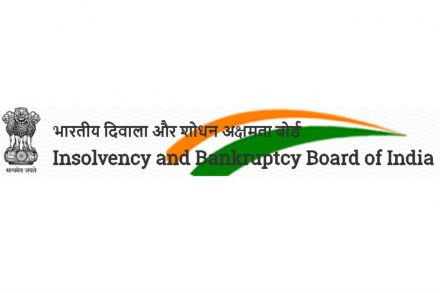Pursuant to Section 60(5) of the Insolvency and Bankruptcy Code, 2016 (Code) the National Company Law Tribunal (NCLT) is bestowed with the jurisdiction to decide: (i) ‘any’ application or proceeding against a corporate debtor; (ii) ‘any’ claim made by or against a corporate debtor including claims by or against its subsidiaries; and (iii) ‘any’ questions of priority or ‘any’ question of law or facts, arising out of or in relation to insolvency resolution or liquidation proceedings of the corporate debtor. Owing to this wide jurisdiction, it is observed, in practice, that most applications filed under the Code include a reference to Section 60(5) of the Code even though such applications are filed under other specific provision(s) of the Code.

The Supreme Court of India in Committee of Creditors of Essar Steel India Limited vs Satish Kumar Gupta, has described Section 60(5) of the Code as a residuary jurisdiction vested in the NCLT so that the NCLT may decide all questions of law or fact arising out of or in relation to insolvency resolution or liquidation of the corporate debtor under the Code. The Supreme Court has also stated that being a non-obstante clause, Section 60(5) is designed to ensure that the NCLT alone has jurisdiction to decide applications and proceedings by or against a corporate debtor; thus, making it clear that no other forum has jurisdiction to entertain such applications or proceedings. Such interpretation is in harmony with the intent with which the NCLT was established, i.e. a single forum to deal with all matters related to insolvency which were previously distributed across multiple forums resulting in inefficiency, ineffectiveness and undue delay. The decision of the Supreme Court in Union of India v R. Gandhi, President, Madras Bar Association discusses the recommendations of Justice Eradi Committee which were accepted by the Government. The NCLT and National Company Law Appellate Tribunal (NCLAT) were established to take over the functions previously performed collectively by the High Courts, Company Law Board, Board for Industrial and Financial Reconstruction (BIFR) and Appellate Authority for Industrial and Financial Reconstruction (AAIFR) so as to avoid long drawn litigation before multiple forums.

The Supreme Court has also laid down certain exceptions wherein the NCLT cannot exercise jurisdiction on certain matters in relation to a corporate debtor undergoing insolvency resolution. In a matter pertaining to refusal by a statutory authority to renew a mining lease in favour of the corporate debtor, the Supreme Court held that the NCLT and NCLAT do not have jurisdiction over such a dispute arising under the Mines and Minerals (Development and Regulation) Act, 1957. The Court observed that a decision taken by the government or a statutory authority in relation to a matter which is in the realm of public law cannot, by any stretch of imagination, be brought within the purview of Section 60(5)(c) of the Code. The Court also remarked that ” the jurisdiction of the NCLT delineated in Section 60(5) cannot be stretched so far so as to bring absurd results.”
In its recent decision in Gujarat Urja Vikas Nigam Limited v Mr. Amit Gupta and Ors., the Supreme Court examined the extent of the NCLT’s jurisdiction under Section 60(5) of the Code in the context of contractual disputes. The dispute, in this case, involved termination of a Power Purchase Agreement (PPA) by the Appellant (a Government of Gujarat undertaking and successor to the Gujarat Electricity Board) triggered solely by virtue of the Corporate Debtor being admitted into insolvency. The NCLT and the NCLAT had restrained the Appellant from terminating the PPA inter alia on the ground that during the insolvency resolution period the corporate debtor had to be maintained as a ‘going concern’ and the termination of the PPA pursuant to which it supplied electricity would render the corporate debtor defunct. An appeal was filed before the Supreme Court on the ground inter alia that the NCLT and NCLAT do not possess the requisite jurisdiction under Section 60(5) of the Code to adjudicate on a contractual dispute between the Appellant and the Corporate Debtor; and that, in any event, the termination of the PPA was valid under the contract.
The Supreme Court observed that the decision to terminate the PPA had not been taken by the Appellant, a statutory authority, acting within the domain of its public law functions. Such termination of the PPA was solely on account of the corporate debtor being admitted into insolvency resolution and relying purely on a contractual condition. The Supreme Court further observed that in the absence of the admission to insolvency and the contractual provision, there would be no ground for termination of the PPA. The Supreme Court held that the NCLT has jurisdiction to adjudicate disputes which arise solely from or which relate to the insolvency of the corporate debtor, in the present case – even overriding the provisions of the Electricity Act, 2003.

Having said so, the Supreme Court notified the NCLT and NCLAT to ensure that, while exercising jurisdiction under Section 60(5) of the Code, care should be taken not to usurp the legitimate jurisdiction of other courts, tribunals and forums when the dispute is one which does not arise solely from or relate to the insolvency of the corporate debtor. Further, the Supreme Court clarified that, in the present case, it is not laying down a general principle on the contours of the exercise of residuary power by the NCLT under Section 60(5) of the Code.
Following judicial precedents, in the view of the authors, the following principles emerge in the context of the jurisdiction of the NCLT under Section 60(5) of the Code:
- The jurisdiction of the NCLT under the Code is wide and exclusive, however, limited to matters arising out of or in relation to insolvency resolution and liquidation proceedings of the corporate debtor.
- The NCLT can exercise jurisdiction in relation to contractual disputes in relation to a corporate debtor.
- The NCLT does not have jurisdiction over decisions taken by statutory authorities while discharging public law functions even if such decisions adversely impact a corporate debtor.
- While exercising jurisdiction under Section 60(5), the NCLT cannot replace the legitimate jurisdiction of other courts, tribunals and forums when the dispute is one which does not arise solely from or relate to the insolvency of the corporate debtor.
- The jurisdiction of the NCLT under Section 60(5) is a ‘residuary power’ and should not be misconstrued as an ‘inherent power’.
















